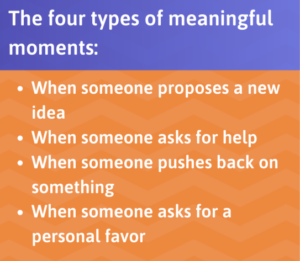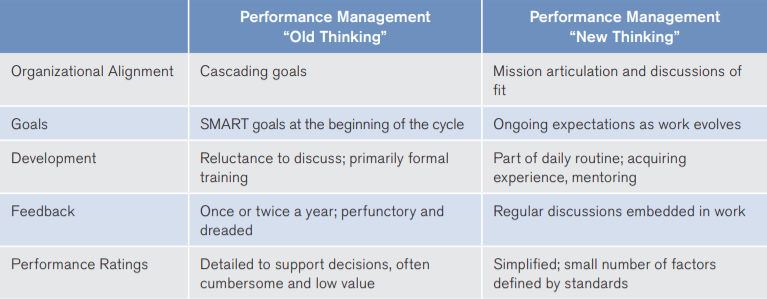
10 Jun 3 Tips for Building A High Performance Culture in Your Workplace
If I asked you to describe your company’s culture in three words, which group of adjectives would you choose?
Engaging, innovative, and collaborative? Or inconsistent, rigid, and unforgiving?
If you’ve worked for an organization where the negative adjectives ring true, it’s safe to assume that you weren’t bringing your a-game when you showed up for work everyday. In fact, you and your coworkers may have been actively disengaged in your roles, unconcerned about the state of the company or whether it would succeed or fail in the long run.
If you’ve had the opportunity to work for an organization where the positive adjectives apply, you were likely motivated to perform your best work, striving to learn and grow in your position, caring genuinely for your coworkers and the long-term success of the company.
Which employee would you rather have working for you?
Culture is the key word here, and it can make or break an employee’s efficiency, effectiveness, and willingness to give their all. Though it’s a significant undertaking, you can increase the productivity, engagement, and performance of your employees by taking steps to improve the culture of your organization.
Here are a few tips you can implement in your workplace to build a high performance culture capable of achieving high performance results.
Create opportunities for open communication
A key component of a high-performing workplace is an employee’s ability to speak openly with managers, coworkers, and subordinates.
A recent Gallup article describes the importance of experiences of vulnerability in the workplace – particularly about how they’re perceived by one’s peers when they occur.
In the article, the author lists four types of vulnerable interactions called “meaningful moments”. How these moments are received by others in the organization make or break a company’s chances of attaining high performance from their employees.

As you can imagine, a culture where employees feel they can take risks and ask questions without facing unwarranted criticism is an environment that promotes high performance.
Take note of how these moments are reacted to in your workplace – are they met with dismissal, or genuine interest?
Brené Brown, a social science researcher from the University of Houston describes the importance of meaningful moments succinctly.
“When we leave an experiencewhere we presented our imperfect selves yet felt belonging, we feel energized and at our best. When we leave an experience where we presented our imperfect selves and were ignored or ridiculed, we feel deeply disconnected and disengaged.”
Empower employees at all levels
Though empowerment is an easy concept to grasp, it can be difficult to define. How does a manager go about effectively empowering their employees? Here are a few common ways:

In companies with a high performance culture, employees are ingrained with a sense of accountability – a feeling of personal responsibility that the job gets done right, regardless if someone’s looking over their shoulder or not.
On the other hand, employees in organizations with a negative culture aren’t trusted to achieve objectives without constant direction, and their poor performance and lack of engagement reflects the distrust of their superiors.
Implement an effective performance management strategy
A SHRM report revealed that no more than 30 percent of managers and employees surveyed claimed that their performance management system effectively establishes goals, provides feedback and improves performance in their workplace.
Interestingly enough, researchers behind the report claim that the problem doesn’t lie with the tools or processes managers use to conduct performance management, but rather the frequency that performance management processes are utilized – high performance workplaces tend to have frequent, ongoing performance reviews rather than quarterly or yearly ones.

SHRM has broken performance management behaviors into “old thinking” and “new thinking”.
Each criteria has been updated to include aspects of ongoing, continuous development, which is of growing importance as increasing numbers of millennials join the workforce.
It’s a significant shift, but many employees now consider jobs to be opportunities for learning and growth, expecting to be coached by their managers rather than simply directed. It just so happens that that approach is one of the key aspects to building a more efficient, effective work culture.
To build a stable culture that fosters high performance, findings in the report suggest that organizations shift their focus from reinventing performance management systems – they’re fine just the way they are, they just need to be practiced more frequently.
At its core, effective performance management allows managers to accomplish goals by clearly explaining expectations and delegating responsibilities to their employees. An successful performance management system serves to help employees better understand what’s expected from them, while also assisting them in personal development and the advancement of their careers.
Do you know of any tips or have your own ideas on how managers can build a high performance culture? Leave a comment on our LinkedIn or Facebook pages and let us know what you think!
——————————————————————————————————————————————————————————————————–
If you’re in search of talent consulting or recruiting services and could use help determining your business needs, contact our team of experienced talent acquisition consultants now.


